- The Polestar 5 hews closely to the Precept concept's well-tailored looks.
- Two models will be available at launch, both with standard dual-motor all-wheel drive, and the more powerful making 884 horsepower.
- Like the Polestar 4 SUV, this new sedan skips rear glass and instead has a camera-only view of what's behind.
2026 Polestar 5 First Look: An Electric Porsche Fighter With No Rear Window
The EV brand’s newest creation is its most advanced and powerful yet
Polestar previewed its latest model, a high-powered luxury sedan of sorts, with the lovely Precept concept in 2020. The good news off the bat is that the production version, the Polestar 5 you see here, lost very little of that show car’s design. The biggest change is a switch to conventional front-hinged rear doors, but Polestar has been teasing this final form for years. The unconventional lack of a rear window remains.
Some meaningful sums
Don't get too hung up on the numbers Polestar uses to identify its models, as they don’t mean much. The 5 will, in fact, be the fifth product from the nascent Swedish-Chinese EV brand, but only its fourth all-electric model. (The limited-run Polestar 1 used a gas-electric hybrid setup.) And when the 5 goes on sale later this year, it will be one of three offerings, alongside the midsize Polestar 3 SUV and the compact Polestar 4, as the China-built Polestar 2 high-riding sedan has been effectively banished from the U.S. due to tariffs. Five also happens to be the number of years it took for the concept to gestate into a production vehicle.
Now to numbers that matter. Polestar had previously primed the world to expect an 884-horsepower dual-motor powertrain in the 5. We now know there will be two models; that max-power version is called the Polestar 5 Performance and will bring along with it 749 lb-ft of torque, while the simply named Polestar 5 Dual Motor model has a healthy 748 hp and 599 lb-ft. Polestar estimates the 0-to-60-mph run will take 3.1 seconds with the former and 3.8 seconds with the latter. That would put it in Porsche Taycan 4S range, if not quite Tesla Model S Plaid territory.
Polestar continues to evolve
This new model marks several firsts for the brand. It will be Polestar’s maiden application of an 800-volt electrical architecture, which brings with it quicker charging. Polestar says the 5’s 112-kWh battery pack will go from 10% to 80% full in as few as 22 minutes. The AC inverter allows for Level 2 charging at a rate of up to 19 kW, while DC fast charging can reach a peak of 350 kW. We’ll have to wait on EPA-estimated driving range figures, but Polestar has said in the past to expect at least 300 miles per charge; the generous Euro-centric WLTP estimates are 416 miles for the Dual Motor and 351 miles for the Performance trim. Oh, and the rear electric motor is an in-house design, responsible for more than 600 of the Performance model’s horsepower.
The 5’s underpinnings, dubbed Polestar Performance Architecture, also make their debut here. Unlike its sibling vehicles, this car’s architecture is not yet shared with anything else under the Geely/Volvo/Polestar umbrella. The structure is made of bonded aluminum and is covered in aluminum body panels. The battery pack is integral to the overall structure, and Polestar says everything has the torsional rigidity of a sports car or hypercar.
The front suspension design is a compact double-wishbone arrangement that Polestar says allows for the front wheels to be tucked up right under the hood. The Dual Motor gets passive dampers, while the Performance uses a set of adaptive dampers. Wheels range in size from 20 inches to 22 inches in diameter, and all wear model-specific Michelin rubber.
Born from jets?
There isn’t a ton to be said about the exterior shape that hasn’t already been said of the Precept concept and successive prototypes. Polestar took inspiration from aerospace for the details, and the crisp lines and sharp, thin lighting elements do help the 5 stand out from softer aerodynamic shapes. One neat item: There's a state-of-charge readout in the rear roof pillar that shows charging progress while juicing up.
The 5's cabin continues the maximal Swedish minimalism aesthetic of other Polestar models. A 14.5-inch center touchscreen runs Polestar’s Android Automotive-based interface with Google Built-In features. Engineers dished out part of the underfloor battery for rear passenger toes in what they call a “foot garage.” Polestar calls the seating arrangement 4+1, as the rear center armrest can be tucked away to create a staggered perch for a fifth occupant.
And then there’s the missing rear window. In Edmunds’ first encounter with this setup in the Polestar 4, it left something to be desired (namely something see-through) and struck us as a tough feature to get used to. As in the 4, Polestar says the lack of glass on the hatch allowed some rear structure to be pushed back, creating more headroom for rear occupants. The jury is still out on whether that’s a worthwhile trade.
Fortunately, as this is still a Volvo-adjacent vehicle, there are plenty of safety systems onboard. A so-called SmartZone up front houses a smattering of sensors. There are a total of 11 cameras around the vehicle, plus one aimed at the driver, as well as a midrange radar unit and 12 ultrasonics for near-vehicle sensing, such as when parking.
Polestar says orders for the 5 are open now in some countries, with specific U.S. availability and pricing to be announced later. Expect an MSRP in the neighborhood of $100,000.
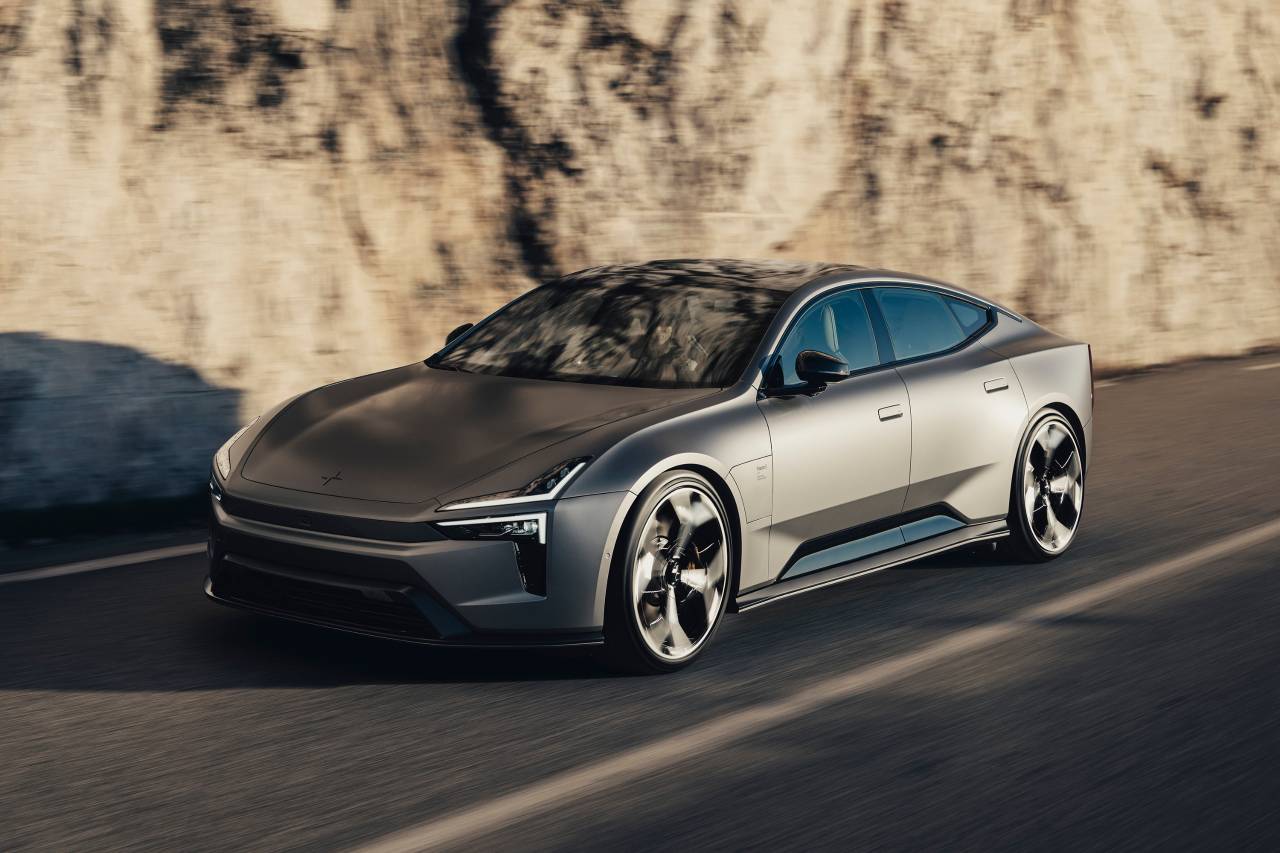




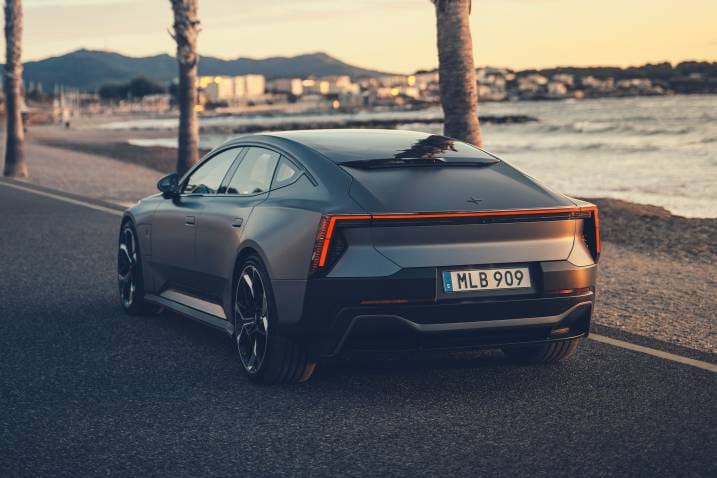
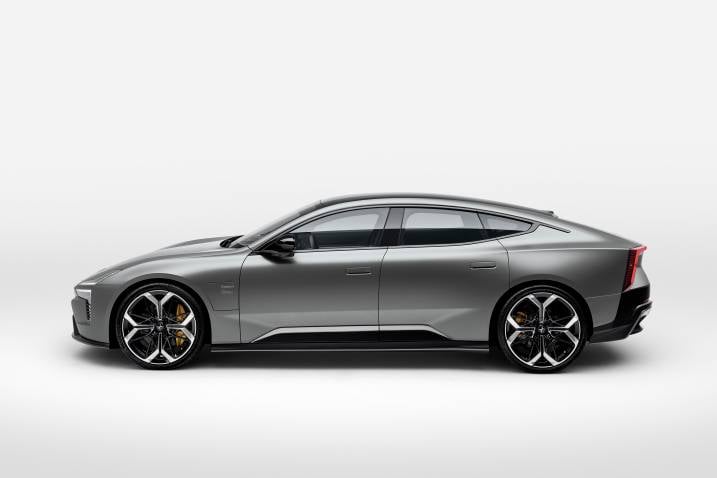

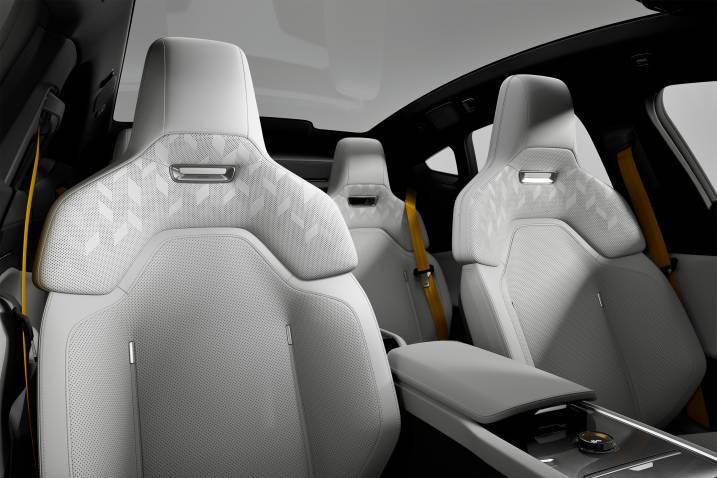
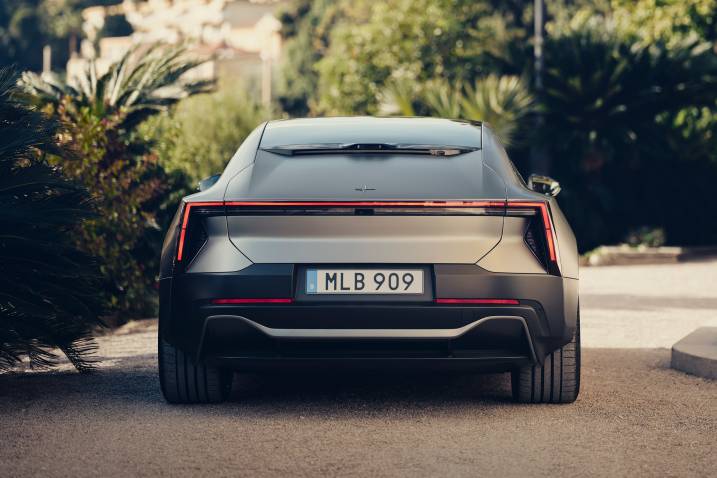
 by
by  edited by
edited by